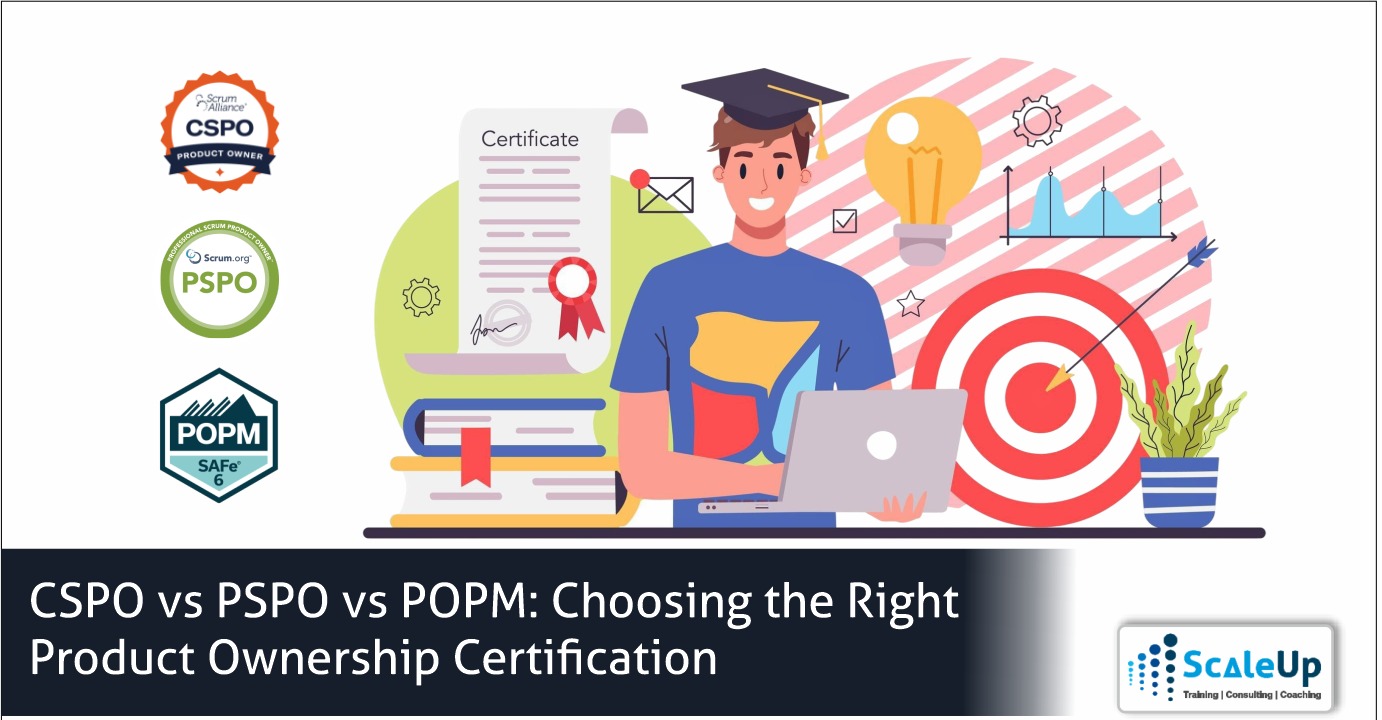In today’s fast-paced, complex world, Product Owners and business leaders often feel the pressure of navigating uncertain markets and delivering products that meet user needs. Despite significant efforts, products can sometimes fail, leading to a sense of defeat. However, this doesn’t mean complete failure. A shift in approach—embracing minimalism—can be the key to success in product ownership.
The Role of a Product Owner
A Product Owner in Scrum plays a critical role as a visionary who collaborates with team members and stakeholders. Their responsibilities include continuous experimentation, decision-making, and ensuring the delivery of maximum product value. By adopting a minimalist mindset, Product Owners can streamline processes, focus on the essentials, and enhance product outcomes without being overwhelmed.
Understanding Minimalism
Minimalism lacks a universal definition, but in essence, it focuses on simplifying processes to achieve agility in dynamic markets. Instead of overcomplicating things, minimalism emphasizes clarity, reducing waste, and concentrating on what truly matters. It is particularly relevant in product ownership, where minimalism aids in delivering higher value through simplicity.
How COVID-19 Made Minimalism Relevant
The COVID-19 pandemic has pushed individuals and businesses to simplify their lives and operations. Remote work, online education, and rapid digitalization have highlighted the importance of focusing on essentials. People have shifted toward investing in high-quality, long-lasting products and have reduced unnecessary expenses. This minimalist mindset has improved financial stability, mental well-being, and overall life satisfaction.
Core Elements of Minimalism in Product Ownership
Minimalism in product ownership can be broken down into three interconnected principles: Simplicity, Lean Thinking, and Essentialism. These concepts are drawn from the Agile Manifesto and the Scrum Guide.
Simplicity
Simplicity is about removing complexity and excess. For Product Owners, it means eliminating unnecessary tasks and maximizing efficiency by focusing on essential activities.
Lean Thinking
Lean Thinking encourages the removal of wasteful processes to optimize value. In Scrum, Product Owners should remove unnecessary steps, leading to more efficient product development.
Essentialism
Essentialism focuses on prioritizing what truly matters. Product Owners must concentrate on the most critical aspects of the product and avoid distractions that do not contribute to its success.
Success Stories of Minimalist Leaders
Several notable business leaders have achieved remarkable success by applying minimalist principles in their work.
● Warren Buffet: Known for his focus on essential investments, Buffet’s minimalist approach helped him achieve incredible success. By concentrating on a few key opportunities, he was able to make sound, profitable decisions.
● Jeff Sutherland & Ken Schwaber: These creators of the Scrum Guide have continuously refined their work, reducing its complexity with each edition while maintaining its core message.
● Azim Premji: As the former chairman of Wipro, Premji exemplifies the minimalist approach. His focus on simplicity and sustainable growth has made him an inspiring figure for entrepreneurs.
Applying Minimalism in Product Ownership
Product Owners can adopt a minimalist mindset by focusing on a few key strategies:
- Clarity of Purpose (“Why”)
Understanding the reason behind a product’s development is crucial. By focusing on the “why,” Product Owners can ensure that the product meets market needs and delivers value.
- Single Product Goal
Concentrating on one goal at a time is a hallmark of minimalism. Product Owners should avoid overloading the product backlog and instead focus on short-term goals to achieve greater success.
- Shorter Product Backlog
Keeping the product backlog concise is essential. A long backlog can lead to delays in product delivery and hinder value creation.
- Prioritization
Minimalism involves setting priorities. Product Owners should focus on tasks that bring the most value to the business and eliminate distractions that slow progress.
- Solving One Problem at a Time
Instead of juggling multiple issues, Product Owners should address problems one at a time, starting with the most significant ones.
- Eliminating Emotional Burde
If an idea doesn’t work, Product Owners should move on quickly without emotional attachment. Small experiments and continuous testing help identify valuable features without dwelling on failures.
- Reinforcing the “Why”
The product vision and goals must be revisited regularly. By keeping them clear and aligned with data, Product Owners can ensure their team remains focused and motivated.
- Learning to Say “No”
Saying “no” is a powerful skill in minimalism. Product Owners should avoid overcommitting to stakeholder demands and focus on tasks that truly matter. Sometimes, delaying a decision (“Not Yet”) can allow for more thoughtful action.
The Continuous Journey of Product Development
Product development is an ongoing process, with no such thing as a “final product.” As market needs evolve, Product Owners must continuously innovate and refine their offerings. Minimalism helps them navigate this journey with clarity, keeping the process simple and goal-oriented.
Pitfalls of Minimalism
While minimalism has many advantages, it’s essential to be aware of its limitations. Over-reliance on minimalism can lead to missed opportunities or reduced profitability. However, the benefits of avoiding excessive risk often outweigh these concerns, helping Product Owners avoid significant losses and slow progress.
Final Thoughts
Minimalism offers a fresh perspective for Product Owners seeking to maximize value and streamline their approach. By focusing on essential tasks, removing unnecessary complexity, and continuously refining the product, Product Owners can achieve long-term success in today’s dynamic market.
Ready to maximize value and drive product success through minimalism? Take the next step in your journey by becoming a Certified Scrum Product Owner. Learn how to streamline processes, focus on what truly matters, and lead your team toward exceptional results.
Don’t miss out on the opportunity to enhance your skills and deliver maximum impact. Sign up today for our Certified Scrum Product Owner course and transform your product management approach.
About the Author:
Vineet Patni is the Founder and Lead Agile Coach at ScaleUp Consultants. As a dedicated learner and enthusiastic facilitator, Vineet has been supporting both organizations and individuals in embracing true Agility. Feel free to connect with him at Vineet@ScaleUpConsultants.com.
Disclaimer: The views expressed in this post are solely those of the author. He values and welcomes diverse opinions.











